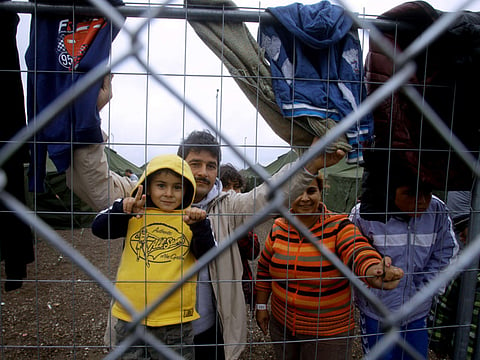Forgetting a multicultural past
What unites the Hungarian and Slovak prime ministers is the view that non-European Muslims are fundamentally alien

Among Britain’s best-loved sportsmen of the 1970s was a mild-mannered heavyweight boxer named Joe Bugner. Born Jozsef Kreul Bugner in southern Hungary, he fled to Britain as a child with his parents after a Soviet invasion in 1956 crushed an anti-Communist uprising.
The Bugner family were among 21,000 Hungarians who arrived in Britain. These refugees formed part of a wave of more than 200,000 Hungarians who crossed the Iron Curtain and found shelter in western countries. Everywhere they benefited from spontaneous donations of clothes, bedding and household goods from the general public. Europe’s refugee and migrant crisis is striking not just for the reluctance of most European Union (EU) governments to open doors on the scale of 1956. A motif of cultural self-defence, of Europe as a Christian fortress, justifiably barred to Muslim hordes, runs through their rhetoric.
Syria’s savage civil war has generated four million registered refugees in the Middle East and beyond. But a person following Europe’s debate may wonder if the clock has reverted to 1529 and the armies of Sulaiman the Magnificent, the Ottoman sultan, are at the gates of Vienna. These anxieties are found in southern, central and western Europe. Socratis Hasikos, Cyprus’s Interior Minister, said unashamedly on Monday that his government would accept 300 refugees, but wanted them to be Orthodox Christians; that is, of the same faith as Greek Cypriots.
Like most public policy issues in Cyprus, this preference needs to be seen against the backdrop of the island’s division, following Turkey’s 1974 military invasion, into a Greek Cypriot south and a Turkish Cypriot north. For many, the line that divides the island is a frontier between Orthodox Christianity and Islam, just as the Berlin Wall was a frontier between freedom and communism.
In the Czech Republic, Hungary, Poland and Slovakia, different political calculations and prejudices are at work. In the Communist era, when Czechoslovakia was a single state and Poland’s borders had been moved west at Soviet insistence, these countries were far more ethnically homogenous than they had been in 1918-1939.
The Nazis had annihilated the region’s Jews in the Second World War and the western Allies and Moscow had countenanced the flight and expulsion of millions of ethnic Germans after the war. After Communism collapsed in 1989, the reborn states of central Europe tended to view the lack of large ethnic minorities as a healthy factor that favoured political stability and civic loyalty to the post-communist order.
Tensions occasionally surfaced, and still do, between Hungary and its neighbours over the status of Hungarian minorities in Romania, Slovakia and Ukraine. But by and large they have proved manageable. What unites Viktor Orban and Robert Fico, the Hungarian and Slovak Prime Ministers, respectively, is the view that non-European Muslims are fundamentally alien and that there are political rewards to be gained from portraying them as a threat, albeit non-violent, to the identities and well-being of their societies.
In Germany, which has articulated Europe’s most generous response to the refugee crisis, it is no coincidence that public opposition is strongest in eastern regions that knew little immigration under Communism. Like Britain and France, the old West Germany took in several million Muslim immigrants from the 1960s on. Earlier, it received the expellees of the late 1940s, as well as huge numbers fleeing East German Communism, until the Berlin Wall went up in 1961.
Unlike in the east, west German life was imbued with a culture of receptiveness from its birth. Western Europeans in general have no right to sneer at central Europe. The Swiss voted in 2009 to ban the construction of minarets; tensions run high in France over the integration of young Muslims; and practically no western European government speaks nowadays about welcoming Turkey one day as a EU member.
With little apparent native enthusiasm for Islam in their societies, it is hardly surprising that their response to the refugee crisis lacks enthusiasm, too.
— Financial Times
Sign up for the Daily Briefing
Get the latest news and updates straight to your inbox


